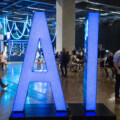In The Weekly Wrap Sean Speer, our editor-at-large, analyses for Hub subscribers the big stories shaping politics, policy, and the economy in the week that was.
The CBC’s days are numbered—and it has no one to blame but itself
As the CBC faces growing scrutiny, including for a new round of executive bonuses in spite of major layoffs, its proponents continue to hang onto the argument that the public broadcaster is still needed to fill the gaps caused by the decline of local news across the country.
Although arguments about market failure in the news media industry tend to be overstated, the case that there’s a real breakdown in local communities—particularly outside of major cities—is more persuasive. The recent failure of SaltWire in Nova Scotia and the declining value of Corus local radio and television stations reinforce that it’s highly challenging to generate a sustainable return by producing news for local markets.
But even if one accepts that this is a case of genuine market failure, the CBC doesn’t really provide the type of news that most people ostensibly have in mind when they make such an argument. Public interest local journalism would in theory cover basic civic news like city hall, local sports, or community activities. The CBC’s provincial and local coverage is decidedly not focused on these topics.

A case in point is an article published this week on the CBC Newfoundland webpage about a local trans man who unexpectedly gave birth to a baby. Whatever one thinks about the story it’s hard to argue that it reflects broad public interest journalism. The article itself indicates that the individual’s chance of conceiving a child was 1.8 percent. The nature of their experience—particularly in St. John’s—is even more atypical. It’s highly niche content that is neither representative of the broad-based local experience nor informative of major national or international developments for a local audience.
It didn’t have to be this way.








